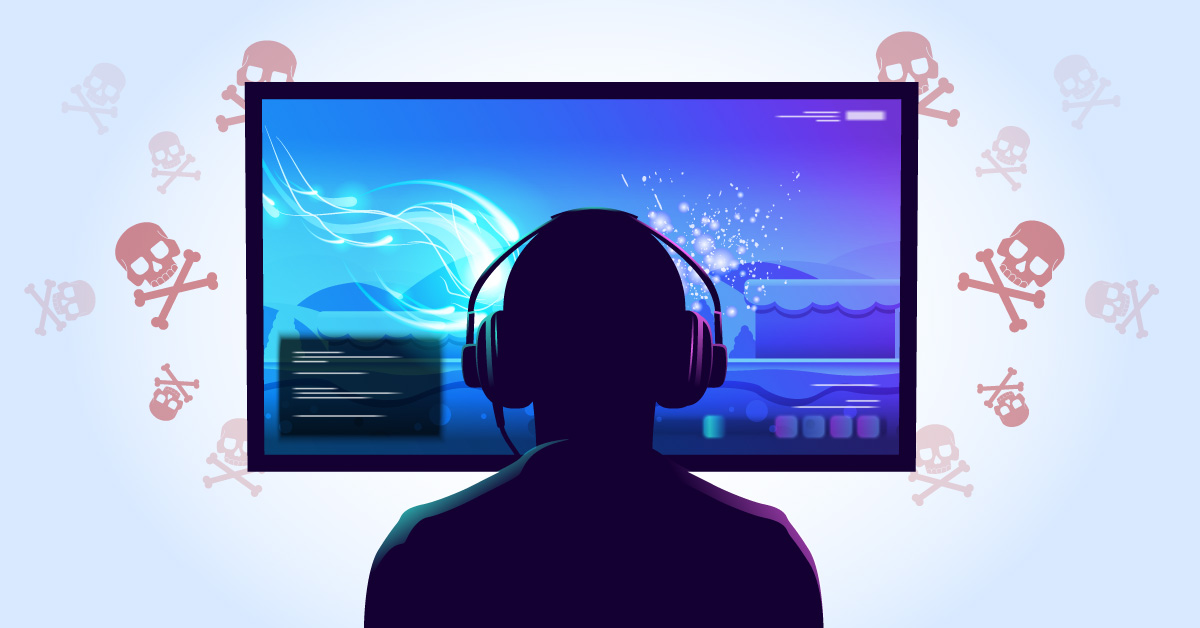The global video game industry is thriving despite the economic disruption created by the coronavirus. Individuals are turning to virtual worlds for escapism from the crisis as social distancing reduces physical interaction to a minimum and encourages people to stay at home.
However, this has sparked an opportunity for criminals, cybercrimes for the gaming industry experienced a spike of a staggering 340% over the past year. Many online games feature in-game currency, in-game purchases, and real-world currency (stored in wallets), making them a tempting target for fraudsters.
Although there are some great benefits to online gaming for young people, it’s important to be aware of some of the risks that might impact their well-being.
Dangers of Online Gaming:
For most users, online gaming is a harmless activity. But there are risks, some of which include:
- Addiction: This is when online gaming goes beyond fun and becomes an obsession that consumes a considerable amount of time.
- Cyberbullying: When a teen or younger child uses a computing device to threaten, embarrass, or otherwise harass a peer, it is known as cyberbullying. It can happen in multi-player gaming chat rooms online (through connected devices such as Xbox Live and others).
- Risk of losing money: Fraudsters target in-game currency, in-game purchases, and real-world currency saved in wallets.
- Malware: To play a specific game, users may be requested to download a software plug-in. They may then be referred to other websites, where malicious software is installed, compromising the security and privacy of the user’s device. Viruses can be embedded in game files, which the user may unintentionally install on their PC.
- Privacy Issues: Hackers may be able to access other accounts such as social media or create new accounts—even complete digital identities—in your name by piecing together data from games and other sources.
- Hidden Fees: Some online games operate on a “freemium” model, which implies they provide some material for no cost. Payment is necessary to unlock all game features, functionalities, and access. Users are required to attach a credit card to their gaming profile in some circumstances, and their card is automatically charged anytime they purchase additional things or services.
Before aware of the dangers that lurk around Online Gaming is one thing. However, it’s important to educate young people into staying safe whilst playing these games. That’s why we’ve pulled together our top safety tips.
Online gaming safety tips for kids:
1. Consider setting parental controls: There will be settings that allow you to specify how kids engage with other players, regardless of what device they are using, such as only interacting with known friends.
2. You can also set limits on how long they play for: Using the same parental restrictions is a good idea. It’s good to look around these areas before allowing your kid to play. Encourage your kids to take screen breaks on a regular basis.
3. Check the game’s content: Themes in most games determine an age rating. A higher rating will be given to games containing violent or sexual content. Examine it to see if it is suitable for your kid. You might want to look at the Entertainment Software Rating Board.
4. Ensure they choose a username that doesn’t reveal any personal information: If your child is given the choice to build a personal profile in the game, make sure they do not reveal any personal information such as their name, age, location, school, financial information, or account passwords.
5. Show your child how to report bad behaviour: Explain how they can report or block players on Xbox Live, PlayStation Network, Steam, or any other platform they like.
6. Always read Online Games Terms and Conditions: To see if there are any hidden fees. Find out how the game publisher tackles inappropriate content or poor behaviour.
Online dangers will increase as we continue to stay digitally connected. However, though we cannot completely stop cyberattacks from happening, we can take precaution by making ourselves aware of the dangers. Always update your knowledge, install cybersecurity on all devices, and play responsibly. To keep your children educated about online gaming risks, you first have to educate yourself. So why not start by enrolling onto awareness programs like Siccura Cybershield.


